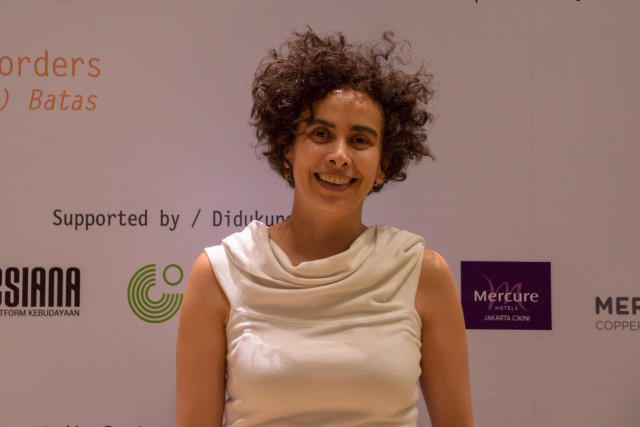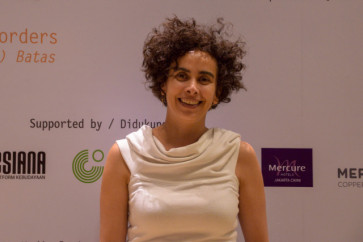Popular Reads
Top Results
Can't find what you're looking for?
View all search resultsPopular Reads
Top Results
Can't find what you're looking for?
View all search resultsPalestinian author Adania Shibli strikes balance between politics, self
Through her stories, Adania Shibli highlights the many difficult situations that have become a part of Palestinians' daily life.
Change text size
Gift Premium Articles
to Anyone
S
ilence, or a lack of words, can be thought of as antithetical to literature. When silence reigns and nothing is said, how will we get our points across?
When Palestinian writer Adania Shibli talked about silence on the main stage of the Jakarta International Literary Festival (JILF), it came as quite the surprise. However, silence is oftentimes a form of refuge for people in Palestine.
In an increasingly hostile world, every minute detail can and will be politicized, in one way or another.
For Palestinians, this effect is amplified. Shibli said in her keynote speech titled “I Am Not to Speak My Language” that speaking Arabic was far too often avoided when in the presence of Hebrew speakers.
Speaking to The Jakarta Post on the sidelines of JILF, Shibli said that life in Palestine was “a constant challenge” at every level, even with the simplest things like taking a stroll.
“If you want to go with a friend just for a nice walk, it’s actually not possible because it will always be interrupted by something. There’s always this niceness disappearing with appropriation of land, new streets and settlements,” she recalled.
When you then decide to go for the not-so-nice walk, Shibli continued, some places are even impossible to get to, like the sea for instance. While she can go, some of her friends do not possess the permits to do so.



















